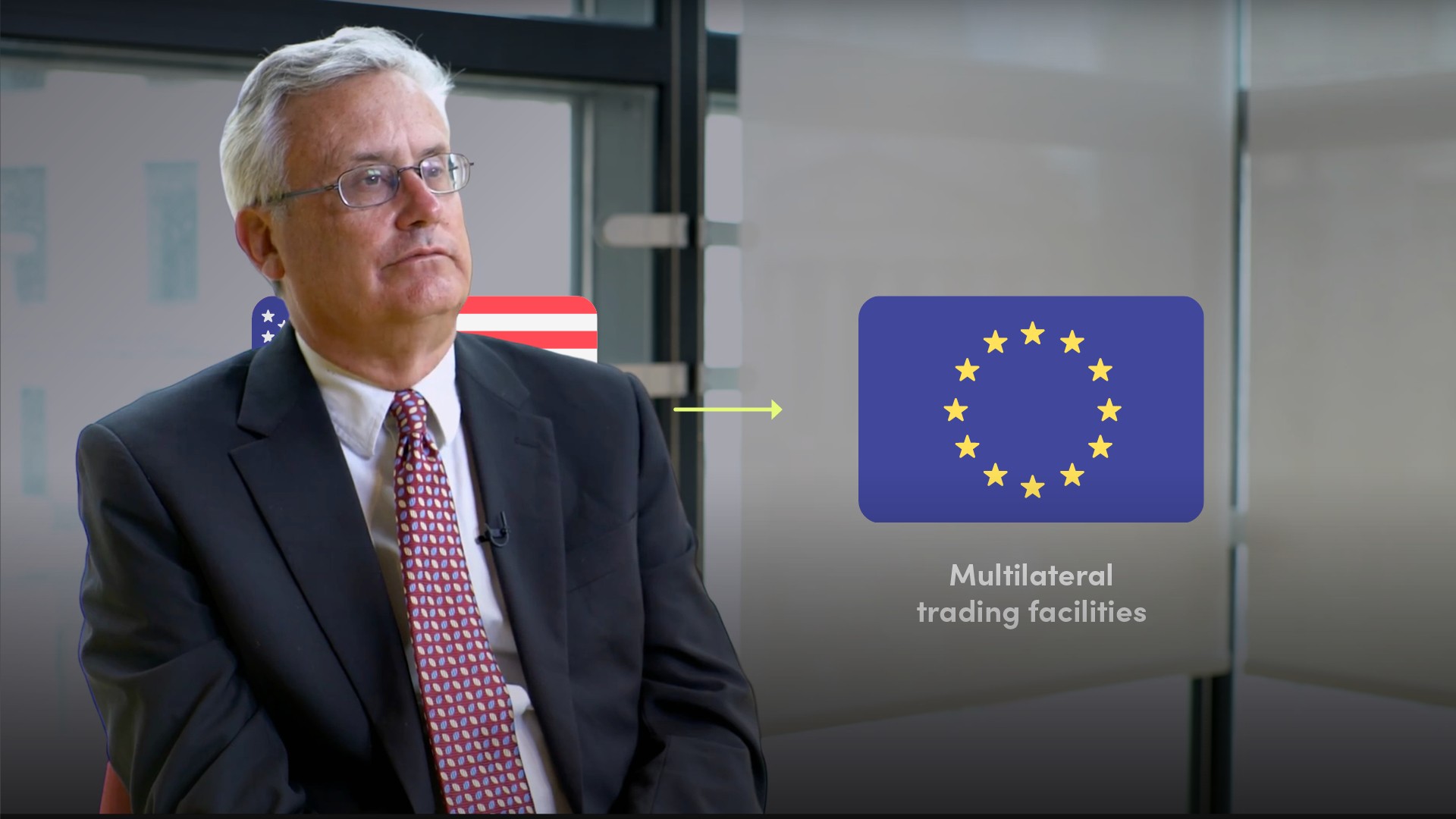
What is an Alternative Trading System?

Peter Eisenhardt
30 years: Capital markets & investment banking
Not all venues to match buyers and sellers are regulated as an exchange. In this video, Peter provides an overview of alternative trading systems.
Not all venues to match buyers and sellers are regulated as an exchange. In this video, Peter provides an overview of alternative trading systems.

What is an Alternative Trading System?
1 min 58 secs
Key learning objectives:
Define ATS
Explain the differences between ATS and a stock exchange
Describe how ATS have influenced trading strategies and regulators
Overview:
Alternative Trading Systems define other mediums that facilitate trades, in addition to stock exchanges. These ATS serve the same function as a stock exchange but are different in regards to its regulation, efficiency of transactions and transparency of trades.
What are Alternative Trading Systems?
Alternative Trading Systems (ATS) are venues to match the buy and sell orders of participants, and now account for much of the liquidity found in publicly traded shares worldwide.
How do Alternative Trading Systems differ from a stock exchange?
- Regulation - The difference between an ATS and an exchange is that exchanges list securities, police issuer reporting and governance. Most ATS are registered as broker-dealers
- Efficiency - ATS are known for their technological efficiency and lower costs, and are often used for high frequency trading
- Transparency - ATS trades do not appear on national exchange order books. This allows trades to be executed discreetly, without adverse price movements. This type of trading is referred to as dark pools
How has ATS influenced brokers’ trading strategies?
Alternative Trading Systems have led to fragmentation, as individual securities are now traded across multiple venues. Brokers have responded by offering smart order routing and other strategies utilising technology to secure the best price across venues.
Why are regulators increasing enforcement against ATS?
Regulators have stepped up enforcement actions against ATS for infractions such as trading against customer order flow or making use of confidential customer trading information.

Peter Eisenhardt
There are no available Videos from "Peter Eisenhardt"

